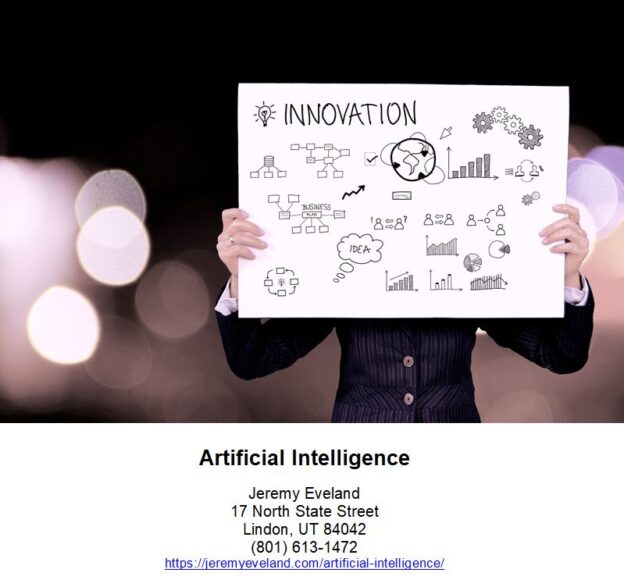Mastering Business Law: Key Essentials For Success
If you're ready to dive headfirst into the thrilling world of business law, then get ready to have your mind blown.
In this article, we're going to take you on a wild journey through the key essentials of mastering business law. It's going to be an adventure like no other, where you'll learn about commercial law basics, intellectual property protection, and so much more.
So strap on your legal boots and get ready to conquer the legal jungle!
You might be thinking, 'Why on earth do I need to know about business law?'Well, my friend, let me tell you.
In today's cutthroat business landscape, understanding the ins and outs of business law is not just important, it's absolutely essential for success. From navigating the treacherous waters of contracts and intellectual property to wading through the murky depths of employment laws and tax regulations, you need to be armed with the knowledge and tools to protect yourself and your business.
So get ready to become a legal warrior, because mastering business law is your ticket to triumph in the ever-changing world of business.
Let's get started!
Key Takeaways
- Understanding contract law is essential for drafting and negotiating legally enforceable contracts.
- Intellectual property law is crucial for safeguarding trademarks, copyrights, and patents.
- Employment laws govern the relationship between employers and employees.
- Mastering business law provides a solid foundation for success in the business world.
Overview
To master business law and ensure success, you need to understand the key essentials of business law. This includes an overview of its various components and how they impact businesses. Business law encompasses a wide range of legal principles and regulations that govern commercial activities. It covers areas such as contract law, intellectual property law, employment law, tax law, and corporate governance.
By having a comprehensive understanding of these different components, you can navigate the legal landscape effectively and make informed decisions that protect your business's interests.
Contract law is a fundamental aspect of business law that governs agreements between parties. Understanding the principles of contract law is essential for drafting and negotiating contracts that are legally enforceable and protect your business's rights.
Intellectual property law, on the other hand, is crucial for safeguarding your business's intangible assets, such as trademarks, copyrights, and patents. By understanding intellectual property laws, you can prevent others from using or infringing upon your valuable intellectual property.
Employment laws are also vital for businesses as they govern the relationship between employers and employees, ensuring fair treatment and compliance with labor regulations. By familiarizing yourself with employment laws, you can create a positive work environment and avoid legal disputes.
Overall, mastering the key essentials of business law provides a solid foundation for success in the business world. It helps you navigate legal challenges and protect your business's interests.
Commercial Law Basics
Learn the basics of commercial law to understand how it impacts your business operations and legal obligations. Commercial law encompasses a wide range of legal principles and regulations that govern business transactions and activities.
It covers areas such as contracts, sales, financing, intellectual property, and competition. By familiarizing yourself with the basics of commercial law, you can navigate the legal landscape more effectively and make informed decisions for your business.
Commercial law provides a framework for conducting business transactions and ensures fairness and transparency in business dealings. It outlines the rights and responsibilities of parties involved in a transaction and helps protect businesses from potential disputes and legal challenges.
Understanding commercial law can help you draft contracts that protect your interests, negotiate favorable terms with suppliers and customers, and resolve disputes in a timely and efficient manner. It also helps you comply with legal requirements, such as consumer protection laws, privacy laws, and advertising regulations, minimizing the risk of legal liabilities and penalties.
Overall, having a solid understanding of commercial law is essential for any business owner or manager to ensure compliance, mitigate risks, and maximize business opportunities.
Intellectual Property Protection
Developing strong intellectual property protection is like building a fortress around your business's creative assets, safeguarding them from potential theft or infringement.
Intellectual property refers to the legal rights granted to individuals or businesses for their creations or inventions, such as trademarks, copyrights, patents, and trade secrets. These intangible assets can be the lifeblood of your business, providing a competitive edge and distinguishing you from your competitors.
To effectively protect your intellectual property, it's essential to understand the different types of intellectual property rights and the legal mechanisms available to safeguard them. Trademarks, for example, protect your business name, logo, or slogan, ensuring that others cannot use similar marks that may confuse consumers.
Copyrights, on the other hand, protect original works of authorship, such as books, music, or software, granting exclusive rights to reproduce, distribute, or display the work. Patents provide protection for inventions, giving the inventor the exclusive right to make, use, or sell the invention for a limited period.
Finally, trade secrets safeguard valuable business information that is not publicly known, such as manufacturing processes or customer lists.
Implementing effective intellectual property protection strategies involves a combination of proactive measures and legal action when necessary. Registering trademarks, copyrights, and patents with the appropriate government agencies ensures that you have legal protection and can take legal action against infringers.
Additionally, taking steps to maintain the secrecy of trade secrets and implementing confidentiality agreements with employees and partners can help prevent unauthorized disclosure. Regular monitoring of the marketplace and enforcement of your intellectual property rights are also crucial to identify and address any potential infringements.
By mastering intellectual property protection, you can safeguard your business's creative assets, maintain a competitive advantage, and ensure long-term success in today's knowledge-driven economy.
Frequently Asked Questions
What are the main differences between litigation and mediation in the context of business law?
Litigation and mediation differ in their approach to resolving legal disputes in business law. Litigation involves a formal court process with a judge and jury, while mediation focuses on negotiation and finding a mutually agreeable solution with the help of a neutral third party.
How can businesses ensure compliance with tax laws and regulations?
To ensure compliance with tax laws and regulations, businesses must treat them like the conductor of an orchestra. They need to harmonize their financial activities, maintain accurate records, seek professional advice, and conduct regular audits to stay in tune with the law.
What are the key elements of a contract that businesses should be aware of?
Key elements of a contract that businesses should be aware of include offer and acceptance, consideration, legal capacity, and mutual assent. It is essential to have clear terms, proper documentation, and understanding of potential remedies in case of breach.
What are the main challenges businesses face when it comes to international business law?
When it comes to international business law, businesses face several challenges. These include navigating different legal systems, understanding cultural differences, and complying with regulations and treaties. It's crucial to have a strong legal team to overcome these obstacles.
How does corporate governance impact the decision-making process within a business?
Corporate governance plays a crucial role in shaping the decision-making process within a business. By establishing clear roles, responsibilities, and accountability, it ensures that decisions are made in the best interest of the company and its stakeholders.
Areas We Serve
We serve individuals and businesses in the following locations:
Salt Lake City Utah
West Valley City Utah
Provo Utah
West Jordan Utah
Orem Utah
Sandy Utah
Ogden Utah
St. George Utah
Layton Utah
South Jordan Utah
Lehi Utah
Millcreek Utah
Taylorsville Utah
Logan Utah
Murray Utah
Draper Utah
Bountiful Utah
Riverton Utah
Herriman Utah
Spanish Fork Utah
Roy Utah
Pleasant Grove Utah
Kearns Utah
Tooele Utah
Cottonwood Heights Utah
Midvale Utah
Springville Utah
Eagle Mountain Utah
Cedar City Utah
Kaysville Utah
Clearfield Utah
Holladay Utah
American Fork Utah
Syracuse Utah
Saratoga Springs Utah
Magna Utah
Washington Utah
South Salt Lake Utah
Farmington Utah
Clinton Utah
North Salt Lake Utah
Payson Utah
North Ogden Utah
Brigham City Utah
Highland Utah
Centerville Utah
Hurricane Utah
South Ogden Utah
Heber Utah
West Haven Utah
Bluffdale Utah
Santaquin Utah
Smithfield Utah
Woods Cross Utah
Grantsville Utah
Lindon Utah
North Logan Utah
West Point Utah
Vernal Utah
Alpine Utah
Cedar Hills Utah
Pleasant View Utah
Mapleton Utah
Stansbury Par Utah
Washington Terrace Utah
Riverdale Utah
Hooper Utah
Tremonton Utah
Ivins Utah
Park City Utah
Price Utah
Hyrum Utah
Summit Park Utah
Salem Utah
Richfield Utah
Santa Clara Utah
Providence Utah
South Weber Utah
Vineyard Utah
Ephraim Utah
Roosevelt Utah
Farr West Utah
Plain City Utah
Nibley Utah
Enoch Utah
Harrisville Utah
Snyderville Utah
Fruit Heights Utah
Nephi Utah
White City Utah
West Bountiful Utah
Sunset Utah
Moab Utah
Midway Utah
Perry Utah
Kanab Utah
Hyde Park Utah
Silver Summit Utah
La Verkin Utah
Morgan Utah
Lawyer for Business Consultation
When you need help from a Business Lawyer, call Jeremy D. Eveland, MBA, JD (801) 613-1472 for a consultation.
Jeremy Eveland
17 North State Street
Lindon UT 84042
(801) 613-1472
Related Posts
Business Lawyer Kaysville Utah
Understanding Utah’s Non-Profit Laws
Business Lawyer Clearfield Utah
Business Lawyer American Fork Utah
How To Handle Customer Complaints In Utah
Business Lawyer Saratoga Springs Utah
The Role of Business Law in Protecting Minority Shareholder Rights
What Are The 4 Different Types of Business Law?
Business Lawyer Washington Utah
Business Lawyer South Salt Lake Utah
Legal Requirements for Utah Technology Startups
Business Lawyer Farmington Utah
Due Diligence For Buying A Utah Business
Understanding Utah’s Labor Laws
Business Lawyer North Salt Lake Utah
Product Liability Laws in Utah
Preventing Cybersecurity Breaches
Business Lawyer North Ogden Utah




